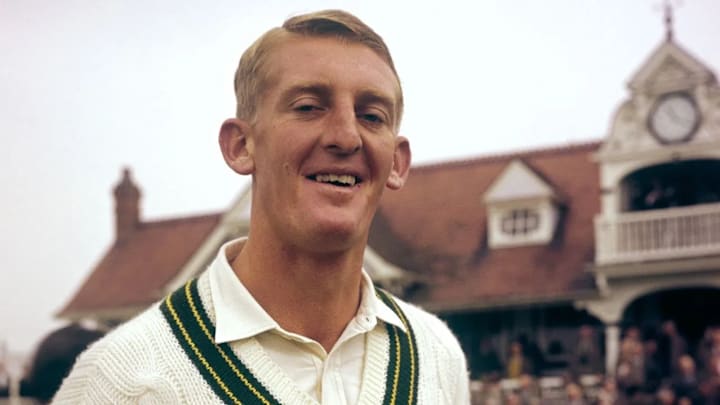Former Australian Fast Bowler Dies Aged 85

Frank Misson, the former fast bowler for Australia and New South Wales, has died at 85.
During the historic 1960–61 home series against the West Indies and the 1961 Ashes visit to England, Frank participated in five Test matches; however, an Achilles injury ended his Test career. In Melbourne, he claimed a career-high 4 for 58 against the West Indies, among his 16 wickets at 38.50.
In a brief career spanning from 1958 to 1964, he participated in 71 first-class matches, most of which were for New South Wales. He concluded with 177 first-class wickets at a clip of 31.13.
In his early years, Frank excelled as an athlete, training under the renowned Australian middle distance coach Percy Cerutty, who is most known for having guided Australia's Herb Elliott to an Olympic gold medal and a world record in the 1500 meters in Rome in 1960.
With his background in athletics and fitness, Frank carried that into his cricket career, making his Sheffield Shield debut for NSW at the age of twenty-nine in the final match of the 1958–59 season, taking six wickets. At the end of the 1959–60 Shield season, Misson was included in an Australian second XI that toured New Zealand, taking 17 wickets at 12.47.
He played his first Test against the West Indies in the second Test in Melbourne the following summer, which came after the historic draw in Brisbane.
Before being selected for the 1961 Ashes tour, Misson participated in two additional Test matches in the five-match series. Ian Chappell, a former Australian captain, wrote about Misson's amazing physical regimen to get ready for the trip.
Following Frank's passing, Chief Executive of Cricket New South Wales (NSW), Lee Germon, paid tribute to him.
"We pass on our sincerest condolences to Frank's family and friends, especially all of those that played with him as part of the NSW Men's Team and the Australian Men's Team," Lee said.
"His five Test caps are recognition of his talent and determination, and there is little doubt that if it wasn't for injury, he would have played many more times for his state and country," he concluded.
